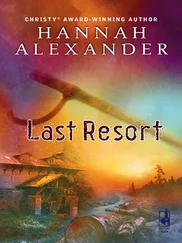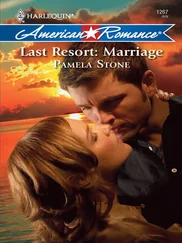15
AT THE ARTS CENTER on Stock Island a panel discussion titled “Naming the Natural World” was moving toward its end. On stage, at a long table under bright overhead lights, the four speakers (including Wilkie Walker and Gerry Grass) were more or less patiently listening and responding to questions from the floor. Gerry had opened the session with his new poem, “White Crane Woman,” which made a dramatic and moving, but fortunately obscure, comparison between his love for and loss of Jenny Walker, and the decline of various equally picturesque Florida bird species. Though it did not rhyme or scan, the poem was given shape and form by the alternation of two refrains:
It is going, it is gone.
and
She is going, she is gone.
Wilkie, like most of the people present, had not made the connection. He had spoken with polite appreciation of Gerry’s work, and gone on to recommend the conservation not only of Florida’s birds, but of its aquatic mammals—thus, he hoped, paying his debt to Barbie Mumpson for once and all. Not that he owed her a great deal: true, she had driven him to the hospital at the time of his gallstone attack, but she had also flung herself on him in public in a way that had caused his wife days of suspicion and misery.
For Jenny, however, the reference point of Gerry’s poem was all too obvious, especially as during the reading he had several times sent a burning glance in her direction. She also thought it quite likely that many members of the audience—at least those who knew her—had made the connection. But she couldn’t worry about that now: there was heavier freight on her mind.
This morning at breakfast, breaking off a low-key discussion of the relative merits of two brands of marmalade, Wilkie had suddenly brought up the subject of Lee Weiss.
“This woman you’ve been working for, that I met last night at the reception,” he had remarked, setting down a section of English muffin.
“Yes,” Jenny said, her voice almost trembling. From his tone, it was instantly clear to her that he hadn’t taken to Lee—and indeed, when they were introduced she had suspected as much. Lee was not the sort of woman Wilkie usually liked: she was too outspoken, too abrupt. She had looked beautiful last night, but too flamboyant, Jenny knew, for her husband’s taste. The party had been a grand affair, held outdoors under the palms at one of the big motels, and Lee had worn a kind of gypsy costume, all swishing sequinned silk and gold beads. Also, though Lee’s manner had been friendly, she hadn’t shown any particular awe of Wilkie or expressed any admiration for his books.
“I really didn’t care much for her. I know she was helpful to you while I was so preoccupied.” This was the term Wilkie had settled on to describe the weeks and months of his fear of death and resulting cold and unkind behavior to his wife. “But I think it would be better if you were to let the relationship cool off now.”
“I can’t do that,” Jenny said. Though internally panicked, she managed to match his casual, affectionate tone. “Lee’s my friend.”
“But you must see that she’s not an appropriate friend for you, darling.” Wilkie smiled and took another bite of English muffin thickly spread with Oxford-cut English marmalade. For the last two weeks, ever since he left the hospital, Wilkie had been amazingly considerate and agreeable to Jenny. He had asked her advice constantly about the manuscript of The Copper Beech, and accepted her suggestion (Lee’s suggestion, originally) that each chapter should be headed with a drawing by Molly Hopkins. He had deferred to her wishes about times and menus for meals; he had assured her often of his affection, and also demonstrated it, though never passionately. All that, he seemed to imply, was over.
“No, I don’t see it,” Jenny declared shakily but loudly. “She practically saved my life, that time I was stung by the jellyfish. I mean, it could have been serious—I could have gone into shock, maybe even drowned—”
“I appreciate that, darling. But you’ve got to admit that Lee Weiss isn’t the kind of person we usually know.” Wilkie smiled in a conciliatory manner. “The manager of a bed and breakfast.”
Not trusting herself to speak calmly, Jenny remained silent.
“And what troubles me more, I understand she rents rooms only to women, many of them lesbians.”
“I told you it was a women’s guest house,” Jenny said. “And I suppose some of the people who stay there—But what difference does that make?”
“I’ve heard on good authority that your friend may be homosexual herself, even though she’s been married. Or at least she’s had some homosexual relationships.” Wilkie held out his coffee cup for a refill.
“I don’t know,” Jenny lied, breathing hard but managing to keep her hand steady as she poured the coffee. “But even if that’s true, why is it so terrible?”
“I didn’t say it was terrible, darling. But it does suggest that she’s not the sort of person I’d like to think was a close friend of yours.” Wilkie smiled and put his hand on Jenny’s for a moment, then moved it back to his coffee cup.
“I don’t—I don’t understand, really,” she said, trying to turn the subject, to avoid direct confrontation. “I mean, if homosexuality is unnatural, why are there so many of them? Why doesn’t it just die out, by natural selection?”
Wilkie smiled. “Well, of course it is a genetic anomaly, darling,” he said. “But it probably had survival value in the past, among primitive people.” He leaned back in his chair and assumed his lecturing voice, deeper and slower and more confident. “A tribe or a family that included extra adult men, men who didn’t reproduce, had a competitive advantage. There would be fewer children to care for, and more adult males to hunt and fight for them. If some of these males were sexually attracted to each other, they would be less likely to fight over the women, or to leave the group and form families of their own.”
“Yes, I see that,” Jenny murmured, falling into her own customary role of student. She thought of Jacko, who seemed to have made no effort to hunt or fight for his family. But he was planning to set up a trust fund for his mother; it was in the will she and Wilkie had witnessed.
“The same might be true of the females, of course,” Wilkie continued. “If some of them were genetically programmed to be sexually attracted to each other, they would remain available to care for the children of their brothers and sisters. Naturally this would give the family, or the tribe, a better chance for survival. Whereas a family or a tribe with no excess adults would be less able to protect and feed its children.”
“Yes, I see,” Jenny repeated.
“Even today, in some societies, you find this pattern. It can occur without actual homosexuality, of course. Late marriages, the economic responsibility of unmarried siblings for their nephews and nieces. But it’s unusual in our society. Most homosexuals in America today are pretty useless. They don’t take any responsibility for their families, in fact many of them break with their families. They devote their resources entirely to lavish, unproductive spending on themselves, and they’re often drawn to a kind of depraved extravagance. I mean, for example, look at this house. Gold faucets in the shape of fish that never existed, and that table you hate so much.” Wilkie smiled broadly, gesturing at the glass coffee table in the next room, with its supporting plaster monkeys, and Jenny managed a matching though weaker smile.
“Homosexuality isn’t as useful to the species as it once was,” her husband continued. “It may even die out eventually, but genetic change is slow. Still, the numbers are declining even now. Partly as the result of AIDS and other diseases, of course. Nature can seem cruel, but she balances her books.” He leaned back, the lecture concluded.
Читать дальше












